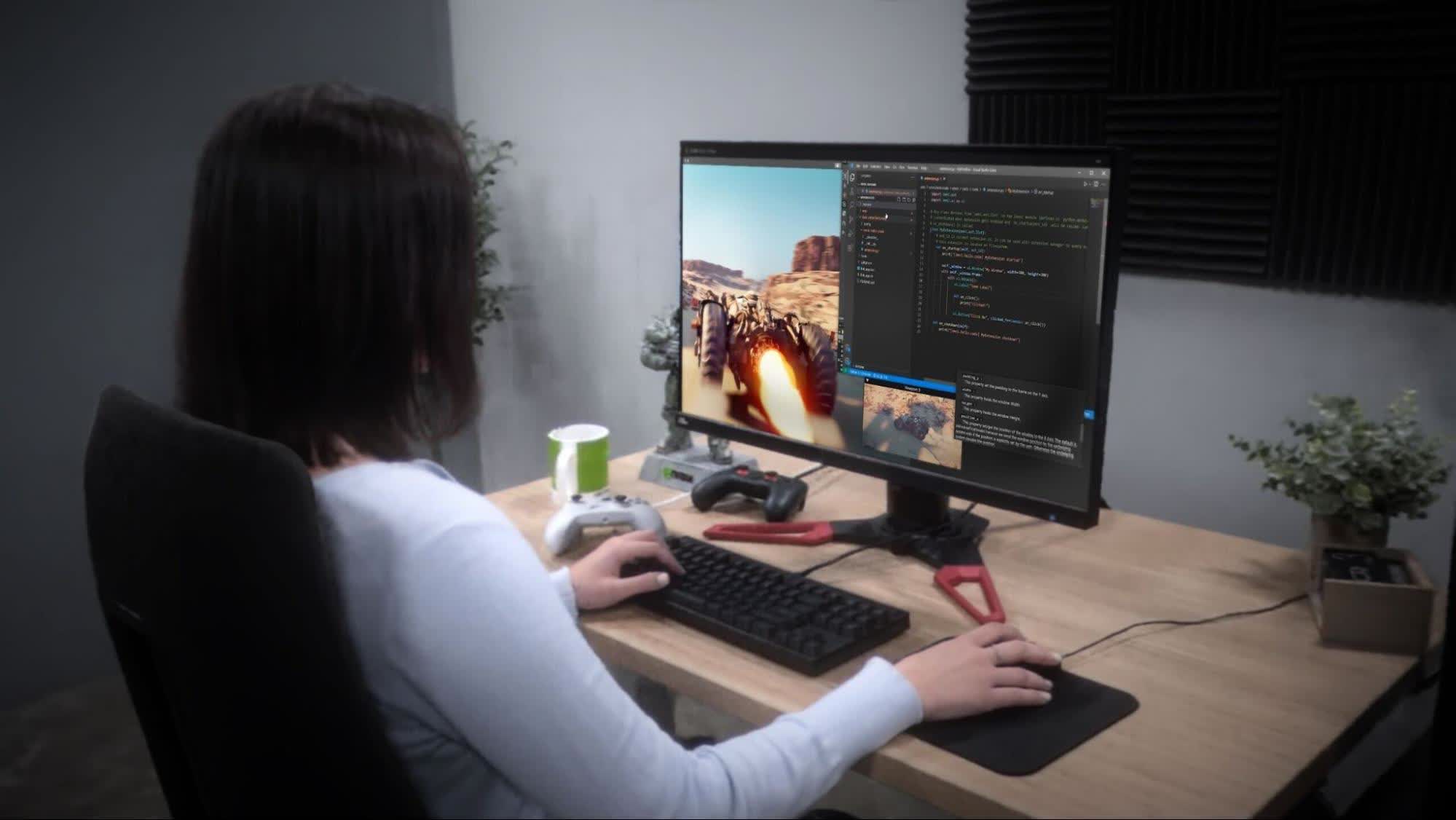Why it matters: Load times are one advantage Microsoft's and Sony's new consoles have enjoyed over PC, taking full advantage of their NVMe storage. Microsoft seeks to bring that advantage to Windows with DirectStorage, releasing a vital component to developers this week.

Microsoft announced Tuesday that developers can now implement DirectStorage into their PC games. The update is essential to making games properly utilize ever-faster nonvolatile memory express (NVMe) SSDs.
This week's release gives developers access to Microsoft's new compression and decompression systems, letting them offload some tasks from the CPU to the GPU. Before the end of the year, Microsoft will release code for asset compression on non-Windows systems.
Intel, AMD, and Nvidia recently announced that their latest graphics card drivers support DirectStorage 1.1, letting each GPU vendor make unique improvements. For instance, Nvidia touted its RTX I/O GPU decompression system, which builds on DirectStorage. However, the onus is on developers to implement these features for players to see a benefit.
The PlayStation 5 and Xbox Series consoles can load and stream large game environments faster than ever due to their I/O processes explicitly written for SSDs. Unfortunately, loading systems designed around hard disc drives still hold back PCs. Tests show that while all SSDs load games significantly faster than HDDs, NVMe devices have almost no advantage over slower SATA SSDs.
Bringing DirectStorage from Xbox to Windows could unlock the entire bandwidth of NVMe drives for PC gaming. Redmond released its first API to developers in March, letting them raise transfer speeds by increasing the number of I/O requests to saturate modern SSDs bandwidth.
Square Enix demonstrated the results at GDC 2022 with Forspoken — the first PC game planning to utilize DirectStorage. The test loaded a scene from the game in slightly under two seconds on an M.2 SSD — about twice as fast as a SATA SSD and 10 times faster than an HDD. However, Square Enix said it could make load times even faster with more development work before Forspoken launches on January 24, possibly referring to the GPU decompression tools Microsoft just released with DirectStorage 1.1.
Taking full advantage of DirectStorage requires Windows 11. Users who don't want to upgrade from Windows 10 will still see some performance improvements, but the legacy OS storage stack might hold them back.
Image credit: Nvidia
https://www.techspot.com/news/96597-microsoft-releases-directstorage-11-developers.html